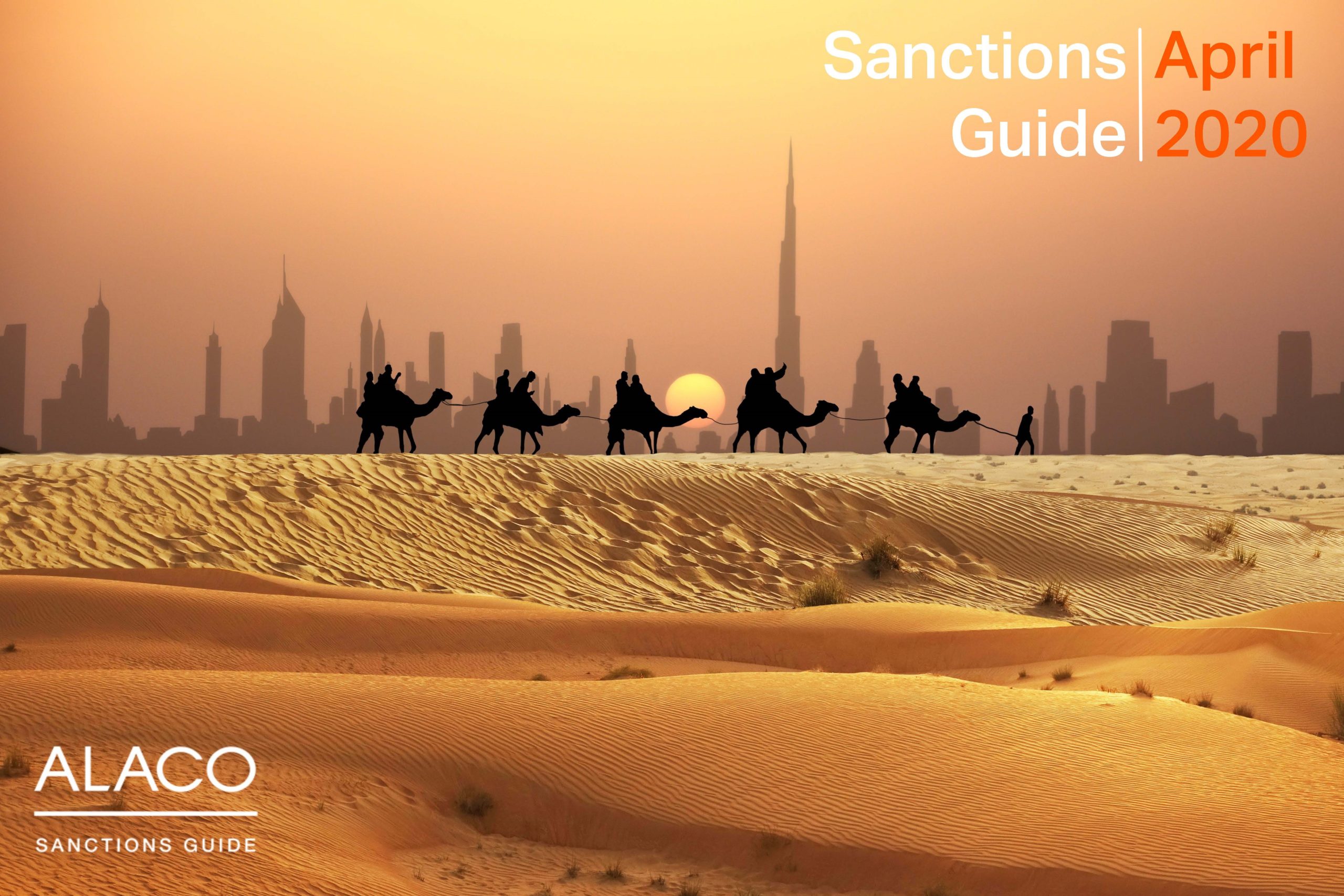Sanctions Guide – April 2020
Key developments this month as the US faces critical sanctions decisions over COVID-19 and North Korean non-compliance and America’s ‘maximum pressure’ strategy to bring its adversaries to heel comes under the spotlight amid UN calls for a relaxation of sanctions against Iran, Venezuela and North Korea to help counter the COVID-19 pandemic.
- Washington has so far refused to ease sanctions against Iran, apparently concerned that funds flowing as a result would be used for purposes other than curbing the spread of COVID-19. But it has offered to begin lifting those on Venezuela in exchange for a power-sharing arrangement between the governing party and the opposition. With the annual UN Panel of Experts report once again highlighting the scale of North Korean sanctions evasion and providing more proof of alleged Chinese collusion in the violations, US hawks will likely be keen to see tough measures against Beijing. They may be emboldened because the US administration is coming under domestic pressure to punish China over its handling of the outbreak, with President Trump ratcheting up his criticism of the Chinese leadership.
- The US has offered some assistance to help Iran counter COVID-19, so far rejected, and has stressed that humanitarian and medical provisions are exempt from its measures as long as sanctioned persons are not involved in the procurement process. But the BBC has pointed out that, notwithstanding sanctions exemptions for humanitarian goods, the purchasing of such supplies can be problematic. It notes that only a few Iranian banks can access the international banking system; there is lengthy and complicated legal compliance for businesses trading with Iran; and a half million dollar limit on US export licences for exempted food and medical items, with the number of such licences issued dropping sharply in recent years.Moreover, the Europeans, keen to maintain trading links with Iran in the face of American sanctions, have taken over a year to activate a special purpose vehicle, known as INSTEX, to protect European businesses from US enforcement action. For the time being at least, the trading channel has been confined to providing medical equipment, its first transaction conducted in late March, with few details about the shipment revealed. That seems to reflect the difficulties around exporting even sanctions-exempted goods and, in particular, European nervousness about using INSTEX, which the US has in the past threatened to sanction.
- The US offer to Venezuela of a “sequenced exit path” from sanctions suggests the administration is running out of economic tools to ouster the Caracas government that continues to be backed by Russia, China and Cuba. President Nicolas Maduro remains defiant despite ever more onerous US trading restrictions that have targeted the state oil company and the petroleum sector in general, denying Venezuela its main source of revenue. At the same time, Juan Guaido, after a promising start as opposition leader, has seen his popularity decline after several missteps, coupled with the energy-sapping toll of economic privation, made more acute by COVID-19. Venezuela’s foreign ministry rejected the American transitional government offer as “an effort to win geopolitical advantage in the midst of a frightening global pandemic”. But while its terms are clearly unacceptable to Maduro, the US proposal may be prove to the starting point of more constructive engagement with Caracas.
- North Korea’s unwillingness to make concessions has also proved to be an enduring problem for Washington. Despite numerous US diplomatic overtures, and offers of economic aid, Pyongyang has insisted sanctions be removed before it dismantles its nuclear arsenal. The North Korean leadership had halted long-range ballistic missile and nuclear tests but that commitment looks to be unravelling and it appears more determined than ever to evade international sanctions. In recent years Pyongyang has conducted various clandestine operations to break the embargo. They include cyber-attacks on financial institutions and crypto exchanges and ship-to-ship transfers of commodities at sea – with the funds raised believed to be contributing to its nuclear and ballistic missile programmes. China’s alleged role in the sanctions-busting is increasingly coming under scrutiny. The latest UN Panel of Experts report into North Korean compliance with the international restrictions reveals that in 2019 limits on imports of refined petroleum were exceeded significantly, while there were sizeable exports of banned coal, estimated at 3.7 million tons, to a value of about $370 million. China is North Korea’s largest trading partner, but it has repeatedly insisted that it enforces the sanctions regime against its neighbour, despite growing evidence to the contrary.


